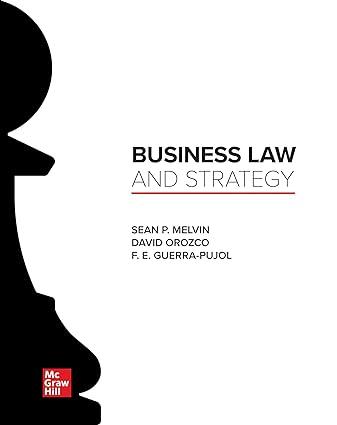Hannington, a graduate student at the University of Pennsylvania (Penn), brought suit against the university for breach
Question:
Hannington, a graduate student at the University of Pennsylvania (Penn), brought suit against the university for breach of contract. Attorneys for both sides appeared to have reached a settlement when, just prior to trial, Hannington’s attorney notified the court that a settlement had been reached and sent Penn a final draft of the settlement agreement. Penn agreed to the settlement terms and sent the settlement agreement back to Hannington’s attorney with Penn’s authorized signatures. However, Hannington refused to sign the settlement agreement, hired a new attorney, and opted to proceed to trial. The trial court refused to allow Hannington’s case to go forward and held that Penn had reasonably relied on Hannington’s attorney as being an agent with apparent authority to settle the case.
CASE QUESTIONS 1. Who prevails and why? Did Hannington’s attorney have apparent authority? What is the standard?
2. Since Hannington never actually signed the agreement, was it reasonable for Penn to assume that Hannington’s attorney had obtained his express consent to the terms? Has the court effectively deprived Hannington of his right to proceed to trial?
Explain your answers.
Step by Step Answer:

Business Law And Strategy
ISBN: 9780077614683
1st Edition
Authors: Sean Melvin, David Orozco, F E Guerra Pujol





